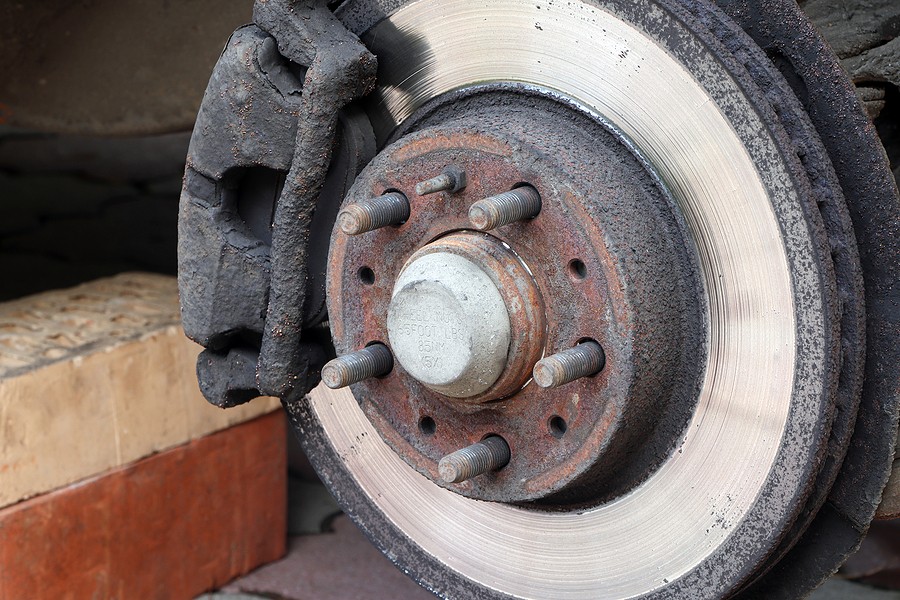The rotor is an important part of your vehicle's braking system. When you step on the brakes, brake fluid passes through the lines to the calipers attached to the rotor. The calipers push pistons against the rotor, causing it to slow down or stop your car.
Without working rotors, you would not be able to stop your car. However, if your rotors are worn out, you will experience certain symptoms. This article walks you through the symptoms that mean you need new rotors. Read on for more details on “Signs That Mean You Need New Rotors”
What is the rotor, and what does it do?
The rotor is a metal plate attached to your wheel. When you brake, the calipers push pistons against the rotor. This slows down or stops the vehicle. The rotor provides a smooth surface for your car to brake against. It also dissipates heat from braking, so there is less chance of overheating and further damage to other parts of the system.
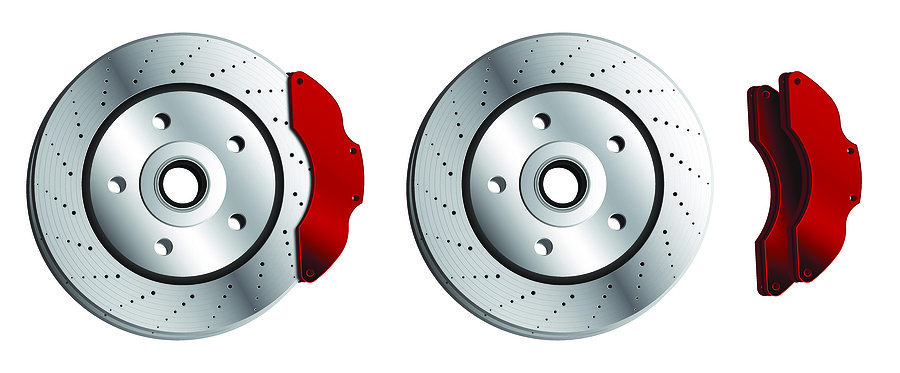
What damages a rotor?
Prolonged braking can cause a build-up of rust on the rotors, which makes them less effective at dissipating heat and slowing down your car. Also, if you don't service your brakes regularly, they won't be as powerful as they should be, especially when it's raining or snowing.
The rotors may warp if you slam on your brakes or brake hard several times. In addition, some rotors are made of materials that can rust, so they should be replaced after a certain number of years, even if you haven't used them that much.
Here is a specific list of the most common causes for rotors damages:
1. Rust build-up from lack of maintenance
The first and most common cause for damaged rotors is rust build-up. When you don't service your brakes frequently enough, the pistons can push against the rust, making it difficult for them to slow your car down. This is because rust does not dissipate heat very well, so the rotors cannot absorb much heat from braking.
2. Overuse of brakes, especially when the weather is wet or snowy
If you slam on your brakes or brake heavily several times, your rotors can warp. When this happens, the metal no longer fits snugly against the rotor and does not absorb heat as well.
It's like wearing a pair of shoes that aren't big enough: it will be difficult to stop, and you won't slow down very much when you do. In addition, when you brake again after the warp has occurred, your car will shake slightly because the metal is no longer smooth against one another.
3. Braking too hard or too fast
When you brake too hard or too fast, your rotors can crack. When this happens, the metal no longer fits against one another, and there is a gap in between that causes your car to shake when you brake again.
4. Not replacing rotors when recommended by a car service manual
While you can usually get away with not replacing your rotors even if they are warped, cracked, or rusted, it's best to replace them every 5-10 years, depending on the material they're made out of.
5. Warped rotors due to use and age
As mentioned earlier, some rotors are made out of materials that can rust if they are not maintained frequently. If you don't change your rotors when they are warped or rusted because of use and age, the pistons won't be able to push against them easily. This means it will take more effort for your car to stop when you step on the brakes, which can increase your car's stopping distance.
6. Drilled rotors or rotors with holes
You should not drive your car if you have drilled rotors or rotors with holes. Driving with either kind of rotor can damage other parts of your braking system because the brake fluid cannot be easily released to stop your car.
7. Bending or buckling rotors due to overheating caused by improper installation of brake pads
When you have new brake pads installed, it's important to have a car service technician inspect the rotors for warping caused by overheating. If they warp, for this reason, they must be replaced before you drive your car again.
Excessive rust on the rotors is dangerous because it will not dissipate heat very well and cause the rotating assembly to overheat. Although it's not as serious as other problems, you should have your rotors inspected by a car service technician if they are rusty.
While having damaged or warped rotors may be inconvenient, the good news is that they can be fixed fairly easily, depending on how badly they're damaged. For example, sanding and painting the rotors will usually do the trick if you have a small crack or warp. However, if you need new rotors, be sure to get them from a car service center that specializes in brake repair.
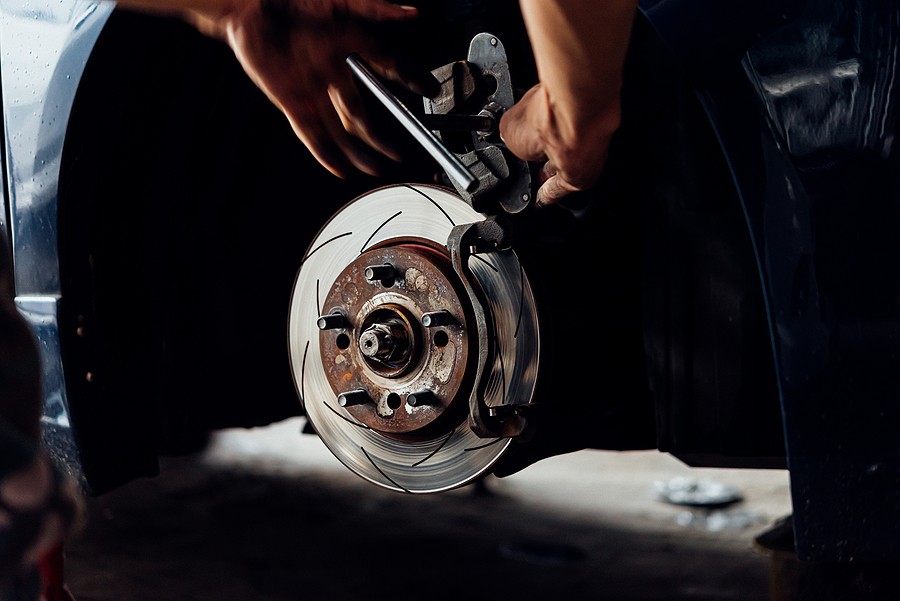
7 Warning Signs That Mean You Need New Rotors
Seven warning signs mean you need a new rotor, including:
Rust and corrosion
If you notice any rust or corrosion on your rotor, it needs to be replaced. Rust makes the rotor less effective at dissipating heat and slowing down your car.
Warped rotor
Warping can happen due to extreme temperatures, lack of lubrication, or sudden stops which stress the rotors. If a warp is bad enough, it can lead to vibration or pulsation in the pedal when braking. You need to see your mechanic immediately to prevent further damage if this happens.
Slow response time
While some brake pad wear is normal, you don't want to see a loss of performance over time where your car doesn't stop as well as it did when new. If you notice that it takes longer for your vehicle to stop after several years of service, have the brakes checked by an auto repair shop because you could have worn rotors.
Pulsating or shaking pedal when braking
Another sign that needs immediate attention is when you feel a shaking or vibrating when braking. What's happening here is that there are deposits on the rotor surface because there isn't enough friction between your brake pads and the rotor. Again, if you feel this, have it checked by an auto repair shop immediately because they may need to machine or replace the rotors.
Loud squealing when braking
When new brakes are installed, they should be quiet when stopping without squeaking or squealing. If you hear loud noises while braking, especially in wet weather, this is another sign that the rotors are too worn down for effective braking. It would help if you got it replaced right away by an auto repair shop.
Discoloration of rotor
Another warning sign is seeing dark spots on your rotor under your wheels or along the edges where pad wear has occurred. As good as it looks, don't clean up these deposits with a wire brush because you are probably scrubbing away some of the surfaces. Instead, you need to leave this alone and replace it with an auto repair shop.
Overheated brakes
If you have to stop more quickly than normal, your brake pads could be very worn, whereas if your brakes overheat from driving around a corner too fast, your rotors may be warped or damaged. Either way, you need to have them checked out right away at a professional service center where they can diagnose the problem and offer solutions for getting rid of your warning signs that mean you need new rotors.
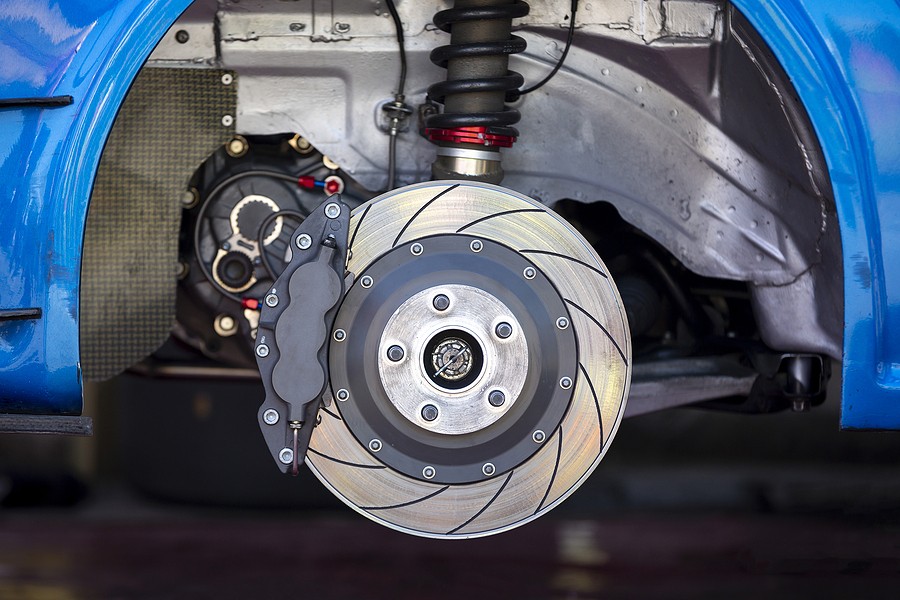
How much does it cost to replace a rotor?
On average, replacing rotors can cost $120 to $180 per axle, and they usually come as a set of two. However, this price range differs between cars brands.
For example, a 2008 Audi A4 will require between $200 and $300 to replace its front or rear rotors, whereas a 2007 Honda Accord costs approximately $100 per axle. Therefore, make sure that your mechanic quotes you a price for all four rotors when replacing them on an axle because it is more cost-effective this way.
Labor cost is also an important component when determining how much you'll pay for replacing your vehicle's rotors. On average, installing rotors will take between one and two hours. Because this is an important component in breaking your car or truck, mechanics usually charge between $70 to $120 per hour.
How to replace your car's rotor?
Some drivers might have the right mechanical skills to replace their rotors. Therefore, if you're planning on saving on labor costs, you can follow these steps to replace the rotor:
- Remove the wheel from the side of your vehicle with the rotor needing to be replaced.
- Mark both sides of each bolt or screw that holds the caliper bracket in place. Doing this allows you to easily put it back into the right position without causing damage.
- Unbolt and remove the caliper bracket. Make sure to keep all screws and bolts safely so they won't get lost.
- Unbolt and remove the rotor, but avoid touching the brake pads with your hands because it can contaminate them or damage their performance. You might want to use protective gloves for this step.
- Inspect all components that you have removed from the rotor side of your axle to make sure everything is working well again before installing new parts back into place.
- Install a new rotor by placing it on top of the wheel hub and then insert and tighten each bolt or screw used to hold the caliper bracket in its original position.
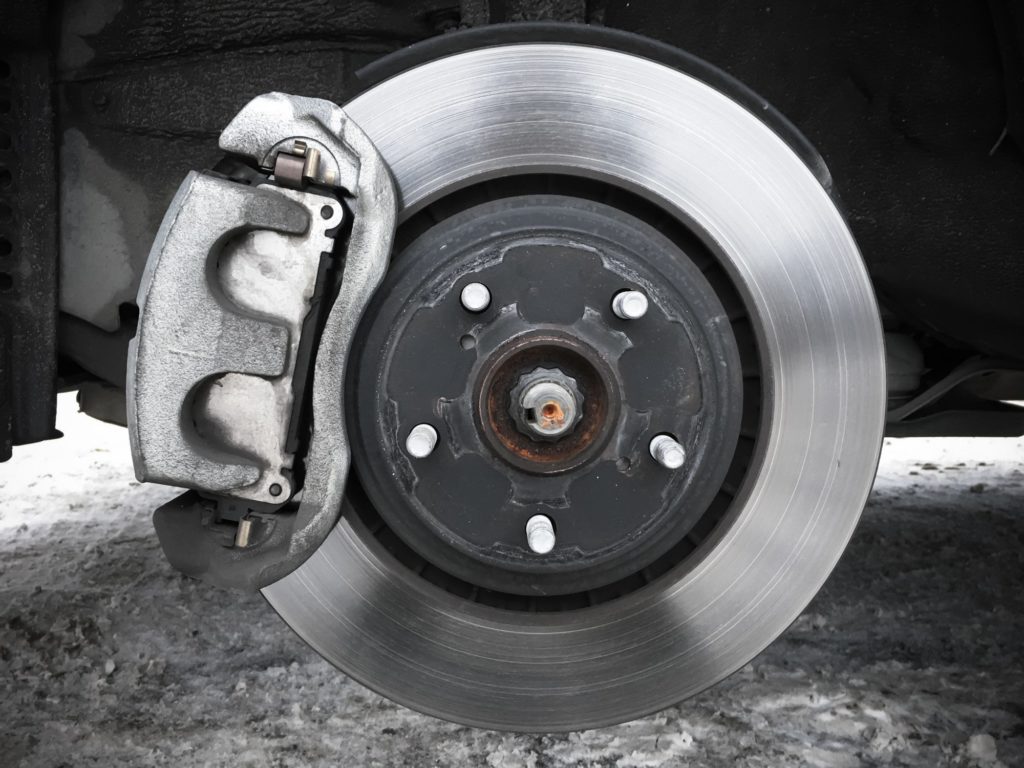
Should I replace my car's rotors by myself?
Replacing your rotors might not be a good idea because you'd have to bleed the brake system afterward to get your vehicle's braking system back into optimal condition. Therefore, there is a high chance that this repair job will become expensive because you would need to pay for an auto mechanic to bleed the brakes, or you can do it yourself.
Replacing your vehicle's rotors is not a hard job per se, but it requires no less than an hour of labor; therefore, the cost of replacing the rotors on most vehicles will be between $120 and around $180 per axle. This price range becomes even more expensive if you end up having to replace the brake pads because the labor involved with this job is more intensive.
Symptoms of a bad rotor FAQs
This section answers some of the most commonly asked warning signs that mean you need new rotors.
What are the signs of bad rotors?
How often do rotors need to be replaced?
Typically, rotors last between 30,000 to 60,000 miles. However, most drivers replace their rotors before they need replacing because it is good practice to do so before paying for a more expensive repair.
Should I replace all four rotors?
Replacing all of your vehicle's rotors is the best way to go because you don't want one rotor to fail while you're driving and have to reduce your speed or brake in an emergency.
Can I replace brake pads and not rotors?
If you have the right set of tools and skills, then yes. However, if you are not very familiar with your vehicle's brake system, it is best to replace both the brake pads and rotors to get optimal braking performance when driving your car or truck.
Is it better to buy new rotors or resurface?
Surface replacement is cheaper because you would spend between $40 and around $90 per axle. However, the problem with this type of repair is that your rotors will not last as long as they would have if you had replaced them entirely. Also, surface replacement does not guarantee optimal braking performance.
Is it hard to replace rotors?
Replacing rotors is not that hard of a job, but it does require some automotive knowledge to get the brake system working perfectly again. Also, like most repair jobs, this one requires specialized tools and equipment.
How do I know when my car's rotors need resurfacing?
Warning signs for worn-down brake pads also apply for worn-down rotors. If you notice that your vehicle's brakes are not as strong as they used to be, it is best to have them checked by a professional, so you don't risk getting into an accident while driving.
How much does it cost to turn rotors at AutoZone?
You can visit your local AutoZone to ask them about their turn rotors service and how much it costs.
Conclusion
It doesn't matter if your brakes are squeaking, grinding, or pulsating to let you know they need to be replaced. This article will outline the warning signs to look for when determining whether or not it's time to replace your rotors and brake pads.
If you're unsure how long ago you last replaced them, this post is a must-read because it includes all of the symptoms to look out for before getting into an accident! Also, we've included some FAQs about braking systems, so make sure you don't miss those either!

